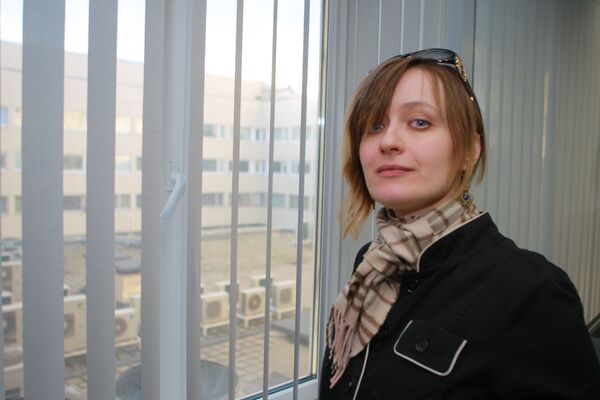If there is a good story to come out of flood-ravaged Krymsk in southern Russia, it’s that the spirit of charity is making a comeback in the country.
Now, I personally really hate charity as a grand gesture. I think most public fundraisers are a good way for the rich to get together and pat each other on the back (not too strenuously, though, considering that the collective cost of the outfits at these events is probably equivalent to the amount of money being raised). Many such events serve as fig leaves that cover up a whole lot of systemic injustice and lack of social mobility.
But that’s not all there is to the story. When disaster strikes, volunteer efforts, when directed by seasoned professionals, are crucial - and particularly so in a country like Russia, where local infrastructure often leaves much to be desired, even in a relatively wealthy area such as the Krasnodar region.
So it was good to observe opposition members and deputies from the ruling United Russia party putting their differences aside for a change and rallying for Krymsk. As well as going down there to aid with the initial clean-up, volunteers gathered and sorted supplies - and the effort is still going strong. Of course, embarrassing stories have shown up in the news media of some people sending torn and old clothes down to Krymsk - but the overall effect has been positive.
As many have recalled the Krasnodar region suffered deadly floods in 2002 as well, and the reaction of civil society at the time was comparatively muted. Nowadays, people are realizing again that, yes, they can make a small difference in another person’s life.
Because the flooding once again revealed official incompetence, with residents not receiving advance warning of the danger, former Finance Minister Alexei Kudrin proposed in his Twitter that municipal leaders should receive training from the Emergencies Ministry on how to handle themselves and how to do their jobs properly when it seems that a natural disaster is imminent. Kudrin’s Twitter feed in general appears as though it’s being beamed from some different, far saner and more organized dimension, I have to say.
Accountability - dare I say it? - is finally becoming a trend. Not that it “should” be trendy, it should be a natural part of both governance and citizen behavior, but I’ll take what I can get for now.
And accountability isn’t something that’s confined to “the elites.” Members of the OMON riot police joined in gathering and packing items, for example. Salespeople all over Russia have been going through inventories, figuring out what useful stuff they can donate out right. At a gathering point for donations, an elderly lady who said she was a retired nanny reminded me that, “It’s very important to send hygiene products for adults and babies. A lot of the people down there have no access to clean water right now - can you imagine what they’re going through?”
Also, people are waking up to the fact that it’s not just material objects that survivors require at this time; they also require psychological aid. Those who are grieving, those who are demoralized and sad, those who fear more flooding in the area need to be able to cope with the magnitude of the disaster that has befallen them.
I’ve written on this subject before, but I’d like to reiterate this point again: the fact that talking about what you’re feeling with a trained professional is gaining widespread acceptance in Russia and cannot be underestimated. Much like charity, psychology is far from a panacea. But in the vacuum left by traditional society, where bonds between relatives and neighbors, for example, were much stronger (often to the detriment of the individual - but I digress), taking care of one’s mental health is often a lonely task. At the very least, sounding out one’s fears following a natural disaster can be useful so that they can be put in perspective - and perhaps then, some of the more outlandish conspiracy theories surrounding the flooding in Krymsk (theories that claim, for example, that the authorities drowned their own citizens on purpose) can be put to rest.
The views expressed in this article are the author's and do not necessarily represent those of RIA Novosti.
Trendwatching in Russia is an extreme sport: if you’re not dodging champagne corks at weddings, you’re busy avoiding getting trampled by spike heels on public transportation. Thankfully, due to an amazing combination of masochism and bravado, I will do it for you while you read all about it from the safety of your living room.
Natalia Antonova is the deputy editor of The Moscow News. She also works as a playwright – her work has been featured at the Lyubimovka Festival in Moscow and Gogolfest in Kiev, Ukraine. She was born in Ukraine, but spent most of her life in the United States. She graduated from Duke University, where she majored in English and Slavic Literature. Before coming to Moscow, she worked in Dubai, UAE and Amman, Jordan. Her writing has been featured in The Guardian, Foreign Policy, Russia Profile, AlterNet, et al.
Trendwatcher: Glory & Balaclavas at Moscow International Film Festival
Trendwatcher: Smile Like You Mean It
Trendwatcher: In the Zone for Euro 2012
Trendwatcher: Old Farts & Pointless Papers
Trendwatcher: “Slumming it” at Moscow’s Jean-Jacques
Trendwatcher: Vacation time for Ugly Americans (and Brits, and Russians)
Trendwatcher: Where the Grass is Green and the Girls are Pretty
Trendwatching: The Unbearable Lightness of Being a Russian Pilot



